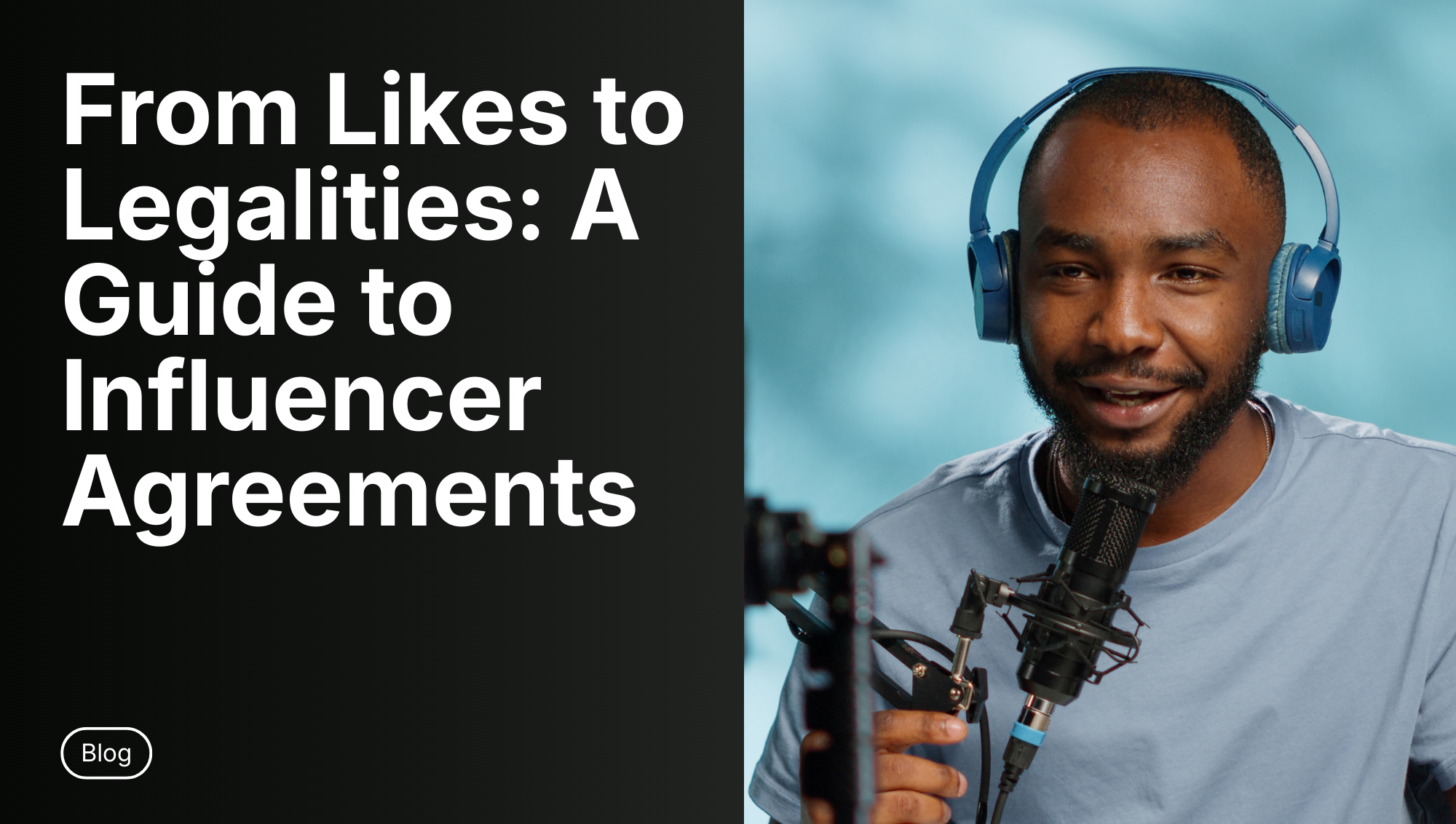Protecting Your Brand in the Digital Age
The shimmering world of influencer marketing promises unparalleled reach and authentic connection. Brands, both big and small, flock to these digital tastemakers, hoping to translate their followers’ likes into surging sales. But beneath the surface of perfectly curated feeds lies a crucial, often overlooked, foundation: the influencer contract. As Sarah, founder of the ethical skincare brand “GlowUp Organics,” discovered, neglecting the legalities can quickly turn a dream collaboration into a costly nightmare.
The Dream Collaboration That Nearly Crashed
Sarah’s story isn’t unique, but it’s a stark reminder of what can go wrong when enthusiasm trumps due diligence. GlowUp Organics was her passion project, built on sustainable practices and high-quality ingredients. What she desperately needed was visibility. So, when the opportunity arose to partner with GlamByAva, a beauty influencer with millions of followers and a reputation for “honest” reviews, Sarah saw her golden ticket.
The initial conversations were exhilarating. Ava loved the samples, praised GlowUp Organics’ mission, and expressed genuine excitement. The contract drafted between them outlined the deliverables: three Instagram posts, two story series, and a dedicated YouTube review. The fee was substantial, but Sarah justified it by the projected sales boost. However, in her excitement, Sarah overlooked some critical omissions in the contract: there were no clear clauses about content approval timelines, exclusivity during the campaign, or, most crucially, a safety net for negative feedback or a breach of expectations. These omissions, seemingly minor at the time, would prove to be devastating.
When Enthusiasm Fades: The Unraveling
The first Instagram post went live, a visually appealing flat lay. It garnered decent engagement, but it felt… impersonal. Then came the first story series. Ava, typically so animated, rushed through it, mispronouncing product names and offering lukewarm praise. Sarah’s stomach tightened. She politely reached out to Ava’s manager, expressing her concerns about the tone. The reply was curt: “Ava is busy. She fulfilled the requirement. What’s the problem?” The problem, Sarah realized, was that the contract only stipulated “posts” and “stories,” not the quality or sincerity of the content.
The true catastrophe struck with the YouTube review. Instead of the glowing endorsement Sarah anticipated, Ava appeared visibly tired and irritable. She criticized the product packaging, complained about a “slight stickiness”—a claim no other user had ever made—and then, to Sarah’s utter horror, subtly promoted a competing brand’s product, implying its superiority.
The comments section erupted. Ava’s loyal followers, swayed by her apparent disinterest and subtle sabotage, began questioning GlowUp Organics’ efficacy. Sales plummeted overnight. Sarah’s brand, poised for breakthrough success, was now embroiled in a public relations crisis. She tried to contact Ava’s team, arguing a breach of the implied understanding of a positive endorsement. Their response was cold, citing the contract’s broad language: “review.” A review, they contended, could be positive or negative. There was no clause stipulating positive sentiment.
Protecting Your Brand: Essential Clauses for Influencer Contracts
Sarah eventually managed to navigate the fallout, but it required months of intensive damage control, direct engagement with her loyal customer base, and a significant investment in smaller, more targeted influencer campaigns with ironclad agreements. Her painful experience underscores vital lessons for any brand venturing into influencer marketing.
When drafting or reviewing an influencer contract, ensure it includes these critical clauses:
- Specificity is Your Shield: Never assume positive intent or unspoken understanding. Every deliverable, every expectation, and every potential pitfall must be explicitly detailed. This includes the desired tone of voice, specific key messages, and even what topics or competitor products are off-limits.
- Clear Approval Processes: Always build in clear clauses for content approval timelines and revision rounds. You absolutely need the right to review and request changes before any content goes live to your audience.
- Exclusivity is Key: If you don’t want your influencer promoting competing products during your campaign, state it clearly. Define the duration and scope of this exclusivity to avoid direct conflicts of interest.
- Performance Metrics & Consequences: While not every campaign can guarantee a specific sales target, consider incorporating clauses that tie a portion of the payment to measurable performance (e.g., specific engagement rates, click-throughs). Additionally, include penalties for breaches of contract, especially regarding negative or off-brand content.
- Dispute Resolution: Outline a clear, predefined process for resolving disagreements. Whether it’s through mediation or arbitration, having this laid out in advance can save significant legal costs and time down the road.
Sarah’s harrowing tale is a powerful reminder that while influencer marketing offers incredible opportunities, it’s not a magical solution. Like any strategic business partnership, it demands meticulous planning, transparent communication, and, most critically, robust contractual agreements to shield your brand from the potentially devastating illusions of influence.
This is where Anya, your influencer booking platform, comes in. Anya transforms the often-risky process of influencer collaborations into predictable, protected partnerships.
Here’s how Anya solves these common problems:
- Robust, Standardized Contracts: Anya provides pre-vetted, comprehensive contract templates that include all essential clauses, ensuring clarity on deliverables, approval processes, exclusivity, and more.
- Managed Influencer Expectations: Influencers on Anya’s platform are onboarded and educated on best practices, ensuring they understand the importance of quality content, brand integrity, and timely delivery.
- Transparent Communication: Anya offers integrated tools for all campaign communications, centralizing discussions and feedback to prevent miscommunication.
- Built-in Approval Workflows: Brands can easily review, request revisions, and approve content directly within the platform, maintaining control over what gets published.
- Dispute Resolution Support: If issues arise, Anya provides structured support, using documented agreements and communications to facilitate fair resolutions.
- Vetted Influencer Pool: Anya ensures its influencers are professional and committed to successful, long-term collaborations.
By using Anya, you’re not just finding an influencer; you’re building a secure, transparent partnership backed by clear expectations and contractual integrity, turning potential pitfalls into success stories.





 No products in the cart.
No products in the cart.